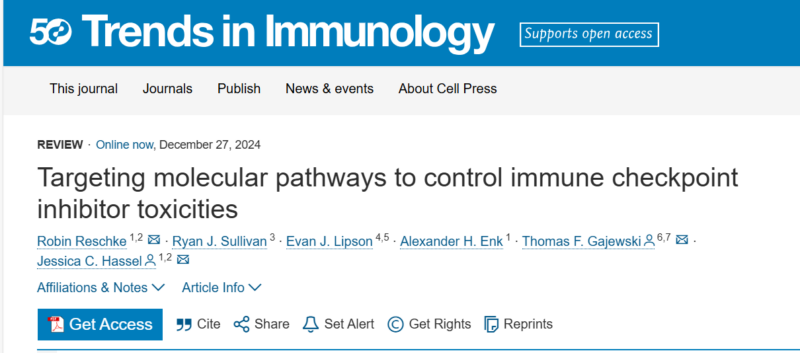Immune checkpoint blockade has revolutionized cancer treatment, offering the potential for durable responses. However, a significant challenge remains: many patients experience immune-related adverse events, which can necessitate treatment pauses or even discontinuation.
A study was published on Trends in Immunology about the growing use of immune checkpoint inhibitors (ICIs) in the treatment of various solid tumors and their associated rise in immune-related adverse events (irAEs).
“Targeting molecular pathways to control immune checkpoint inhibitor toxicities”
Authors: Robin Reschke, Ryan J. Sullivan, Evan J. Lipson, Alexander H. Enk, Thomas F. Gajewski, Jessica C. Hassel

Robin Reschke, Max-Eder Junior Research Group Leader at National Center for Tumor Diseases (NCT) Heidelberg, the first author of this article, shared about the study on LinkedIn, adding:
“Hot off the press! What an amazing early birthday gift.
Thrilled to share an incredible collaboration with some of the world’s leading institutions: Harvard University, Johns Hopkins University, University of Chicago and Heidelberg University
Immune checkpoint blockade has revolutionized cancer treatment, offering the potential for durable responses. However, a significant challenge remains: many patients experience immune-related adverse events, which can necessitate treatment pauses or even discontinuation.
If you’re curious about the diverse mechanisms behind immunotherapy-induced toxicities and how personalized medicine can help treat them, this is a must-read!”


